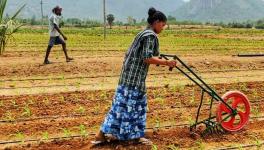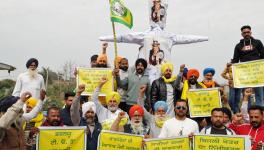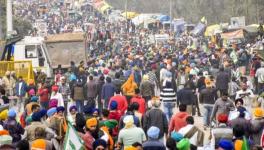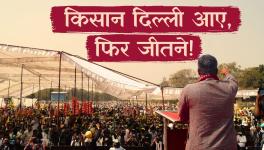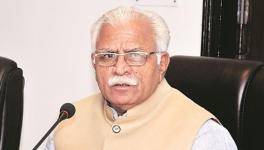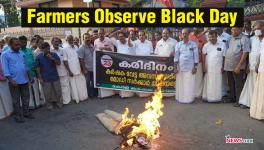‘Don’t Understand Why Old People, Women Kept in Protests’: CJI’s Remark Sparks Outrage
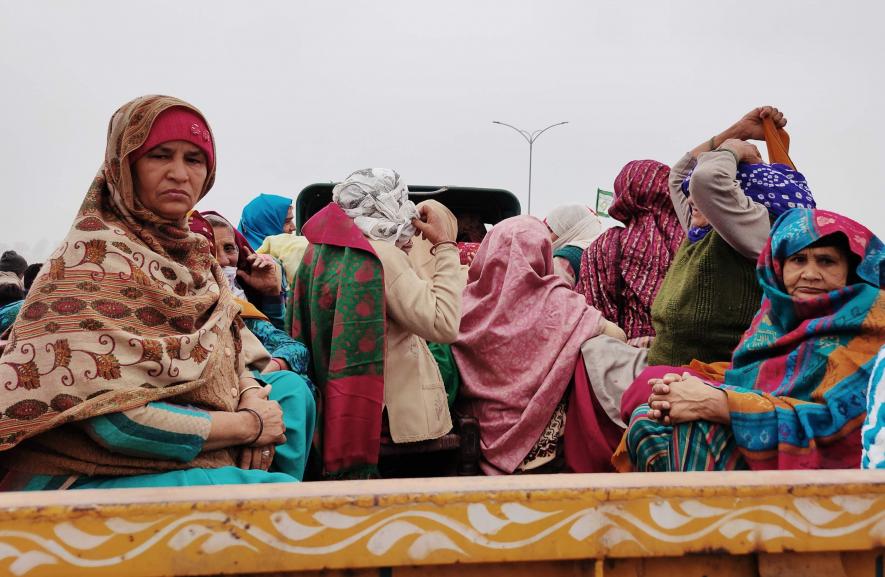
Women farmers during the tractor rally on January 7, 2021.
New Delhi: While the Supreme Court was hearing a batch of petitions challenging the constitutional validity of the three contentious farm laws and raising the issue of farmers protesting at Delhi borders, some remarks made on Monday and Tuesday in the apex court regarding women protesters have sparked outrage.
The Supreme Court on Tuesday stayed the implementation of the new farm laws till further orders and constituted a four-member committee to resolve the deadlock between the Centre and farmers' unions protesting at Delhi borders.
During the hearing on January 11, Chief Justice of India SA Bobde was quoted by LiveLaw as saying: “We don't understand either why old people and women are kept in the protests. Anyway, that is a different matter.”
Following this, on Tuesday, before the SC passed the interim order staying the implementation of the farm laws, advocate AP Singh, who claimed to be appearing for Bharatiya Kisan Union (Bhanu), stated that women, senior citizens and children will not participate in the protest. The basis of this move, he said, was the cold and COVID-19 pandemic amid which the protests are going on.
The CJI told AP Singh: “We will record your statement that elders, women and children will not participate in the present protests." The three-judge bench headed by CJI Bobde further said, “We want to place on record our appreciation for this stand (about elders, women and children not participating in protests in future).”
Reacting to the CJI’s January 11 comment, Yogendra Yadav, leader of Swarajya India which has been part of the ongoing farmers’ protests, pointed out on Twitter that “70% of farm labour” in India was done by women. He also underlined the CJI’s use of the word ‘kept’ for women protesters, which gives a sense that the women are not there on their own accord and they do not have an agency to choose for themselves.
Yadav even suggested that advocate AP Singh was probably 'lying' to the apex court about BKU (Bhanu)’s decision to keep the women and elderly out of the farmers’ agitation. “Seems AP Singh is lying to the Supreme Court. I spoke to Mr Bhanu, President of BKU (Bhanu) after reading this. He confirmed to me that Mr Singh did not speak to him yesterday or today and that there is no question of his organisation asking women and elders to go back,” he said. Both BKU (Bhanu) and Swarajya India are part of the All India Kisan Sangharsh Coordination Committee, an umbrella body of farmers’ organisations that is leading the protests.
The discontent over the CJI’s remark and AP Singh’s compliance on keeping the women and elderly out of the protests manifested itself strongly on Twitter. People strongly argued that others were speaking on behalf of these groups, portraying them as vulnerable while taking away their agency.
All India Progressive Women’s Association (AIPWA) secretary Kavita Krishnan also criticised the remarks made in the top court. “Dear CJI - can you maybe get it into your heads that women, the elderly HAVE AGENCY and CHOOSE to be in protests? They're not "kept" by anyone. Anyway we all see what you're doing - orchestrating "stay" & mediation committee to clear protests, only to help the Govt keep the laws,” Krishnan tweeted.
Dear CJI - can you maybe get it into your heads that women, the elderly HAVE AGENCY and CHOOSE to be in protests? They're not "kept" by anyone. Anyway we all see what you're doing - orchestrating "stay" & mediation committee to clear protests, only to help the Govt keep the laws. https://t.co/f9E6RAIole
— Kavita Krishnan (@kavita_krishnan) January 11, 2021
“CJI was OK with Women, kids and the elderly walking 100s of KM to reach home during lockdown but is not OK with Women, kids, and elderly protesting against Narender's farm bill,” said an Aam Aadmi Party member referring to migrant workers’ exodus from cities during the nationwide lockdown in the wake of the COVID-19 pandemic.
CJI was OK with Women, kids and the elderly walking 100s of KM to reach home during lockdown but is not OK with Women, kids, and elderly protesting against Narender's farm bill.
— Kapil (@kapsology) January 12, 2021
Srivatsa YB, National Campaign In-charge of Indian Youth Congress, also criticised what transpired at the court. “Who are AP Singh & ML Sharma (well known misogynists) to tell SC that Woman will further not participate in the Protests? Why is CJI Bobde appreciating them?” he asked, concluding that the proceedings was a “blot on out judiciary”.
One woman user dubbed the move as ‘benevolent sexism’, which sees women as weak individuals who need to be protected.
Writer and lawyer Avantika Mehta said the CJI’s appreciation of AP Singh’s submission was appreciation for taking away the agency of women and the elderly.
The CJI’s comment has sparked outrage as it trivialises women’s decision to participate in protests against laws that they see as having a detrimental impact on their life and livelihood. It is important to know that around 80% or 17 crore women work in agriculture and allied activities, producing about 60-80% of our food and 90% of dairy products but only 13% have property rights, says a factsheet brought out by Oxfam.
According to NSSO 2017-18, in India’s rural areas, about 55%of male workers and 73.2% of the female workers were engaged in the agricultural sector. So, women have a high stake in how agriculture reforms and policies affect farming.
However, these large numbers of women, in absence of land rights, are not recognised as farmers. The definition of a farmer in India is mostly linked to land ownership, be it in government schemes or surveys. This essentially precludes the large number of women farmers who do not have land titles.
The Census considers a person as a cultivator if they work on a piece of land, regardless of ownership. According to the National Sample Survey Office, a farmer is defined as a person who possessed some land and was engaged in agricultural activities on any part of that land for the last year. Further, without land titles, women farmers are also excluded from central schemes for farmers such as PM-KISAN, which ties the benefit to land for small and marginal farmers holding up to two hectares of land.
Get the latest reports & analysis with people's perspective on Protests, movements & deep analytical videos, discussions of the current affairs in your Telegram app. Subscribe to NewsClick's Telegram channel & get Real-Time updates on stories, as they get published on our website.









